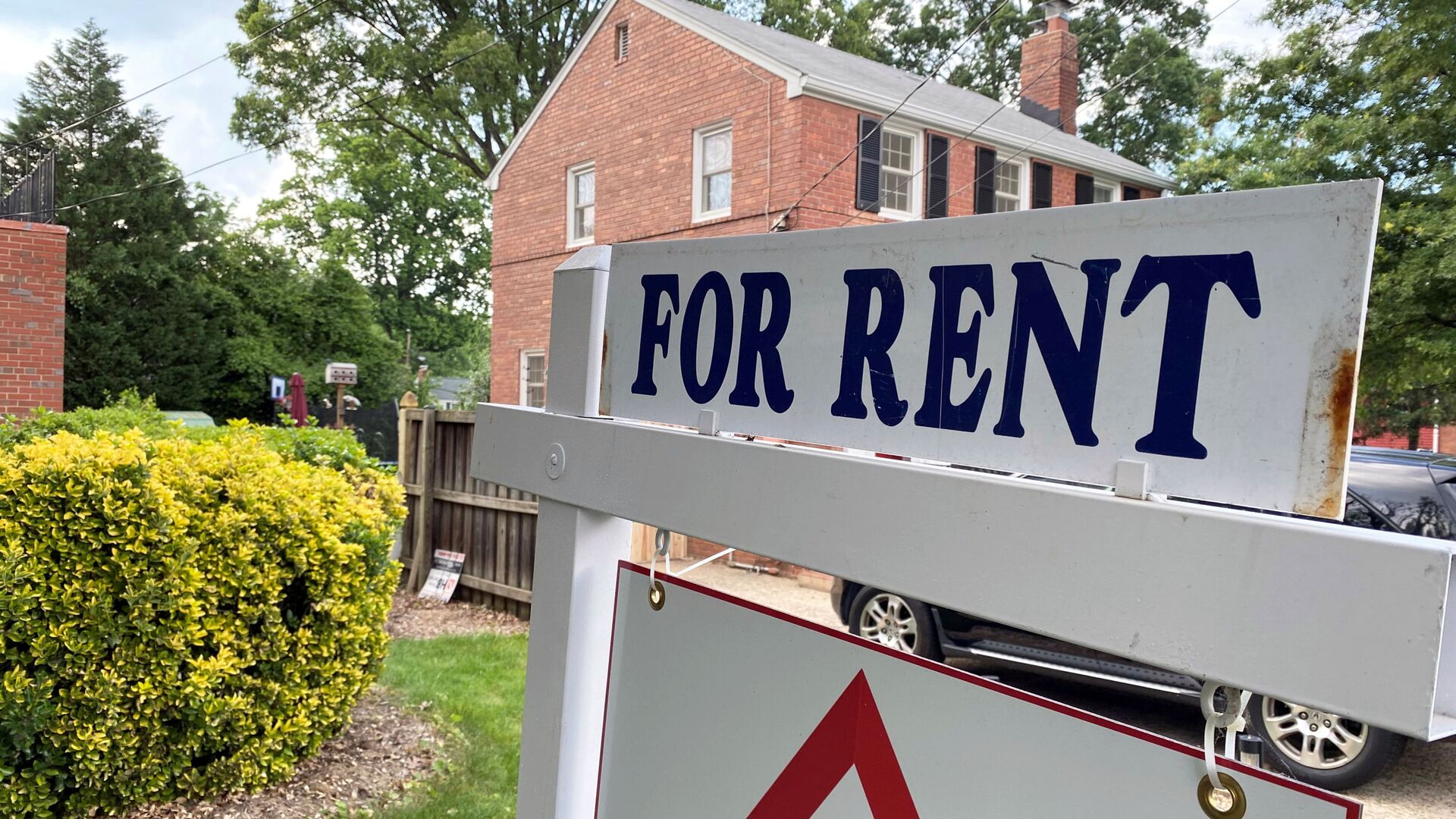US CDC Renews Federal Ban on Evictions Until October 3, Defying Supreme Court Ruling
21:38 GMT 03.08.2021 (Updated: 23:34 GMT 03.08.2021)

© REUTERS / WILL DUNHAM
Subscribe
The US Centers for Disease Control and Prevention (CDC) has announced it is renewing the ban on evictions that expired on July 31, setting the stage for a constitutional showdown after the US Supreme Court ruled earlier this year that the public health agency didn’t have the authority to issue such a ban.
After days of protests outside the US Capitol and appeals by federal lawmakers, US President Joe Biden has bowed to popular pressure and directed the CDC to extend the federal eviction moratorium until October 3. The move will protect perhaps 90% of American renters as more than 11 million people remain behind on their rent payments, according to CNBC.
"Following the recent surge in cases brought forth by the highly transmissible Delta variant, the CDC Director now issues a new order temporarily halting evictions for persons in counties experiencing substantial or high rates of transmission," the updated order issued Tuesday states. "This order will expire on October 3, 2021, but is subject to further extension, modification, or rescission based on public health circumstances."
However, the new measure is more restrictive than before, now saying it is "intended to target specific areas of the country where cases are rapidly increasing, which likely would be exacerbated by mass evictions."
The updated terms defined a "covered person" as someone who:
- has used best efforts to obtain all available governmental assistance for rent or housing
- has earned no more than $99,000, or $198,000 if filing jointly in 2020 and expects to earn less than that in 2021
- is unable to pay the full rent or make a full housing payment due to substantial loss of household income, loss of compensable hours of work or wages, a layoff, or extraordinary out-of-pocket medical expenses
- would likely be rendered homeless by eviction
- resides in a US county experiencing "substantial" or "high" rates of community transmission levels of SARS-CoV-2 as defined by the CDC
"I applaud the CDC for imposing an eviction moratorium for the vast majority of the population," Senate Majority Leader Chuck Schumer (D-NY) said in a statement. "For anyone to lose their home through no fault of their own is devastating, and it's shameful that Republicans in Congress aren’t lifting a finger to help prevent it from happening."
“You did this!” - @SenSchumer pic.twitter.com/PlmIFiLGKY
— Congresswoman Cori Bush (@RepCori) August 3, 2021
House Speaker Nancy Pelosi (D-CA) said in a statement that "Democrats have worked tirelessly for this action, which is based on public health needs. This brand new moratorium will provide time for the money allocated by Congress to flow, as it helps stop the spread of the virus which is worsening due to the delta variant and protects families and landlords. I am especially pleased about what this means to the children who have had uncertainty about their housing, their health and their education.”
The decision sets the stage for a showdown with the US Supreme Court over the legality of the move. In late June, the nation's top court sided with a group of Alabama landlords, agreeing the CDC "exceeded its existing statutory authority" with the eviction ban; however, the court declined to strike down the ban itself, since it only had one month left before it expired. However, Justice Brett Kavanagh noted a ban on evictions wasn't necessarily illegal if implemented via other means, such as legislative action.
As a consequence, as the end of July neared, confusion reined in Washington about what to do: Congressional Democrats appealed to Biden to renew the ban, while Biden appealed to the CDC to take action, then to Congress just hours before the House adjourned on Friday for a seven-week recess.
As lawmakers left and the ban expired, Rep. Cori Bush (D-MO) began a protest on the steps of the US Capitol building, promising to continue sleeping rough until a new eviction ban was implemented. The protest drew at times hundreds of protesters and several other progressive lawmakers who came to express their support.
On Monday, Biden again appealed to the CDC, which again declined, saying it had "been unable to find legal authority," according to White House Press Secretary Jen Psaki.
Expiration of the ban would have opened more than 11 million Americans up to being evicted from their homes, since many state eviction bans put in place during the COVID-19 pandemic had either already expired or would soon expire. While the administration has earmarked some $46 billion in emergency financial assistance for renters behind on their rent, more than enough to erase all rent debts accumulated during the pandemic, only a tiny fraction of that money has actually been distributed - just $4.5 billion.
In its updated order Tuesday, the CDC referenced the slow pace of aid disbursement as a contributing factor in their decision.
"Based on analysis of grantee reporting, [the Department of the] Treasury believes that the monthly deployment of rental assistance by state and local emergency rental assistance programs will continue to increase from the significant deployment in June," the order notes. "In addition to Emergency Rental Assistance, there are also coordinated efforts across federal agencies to - in partnership with states and localities - promote eviction prevention strategies."
Unlike renters, homeowners were given the option of actually pausing their mortgage payments, although a federal moratorium on foreclosures of federally-backed mortgages was also allowed to expire on July 31. With 1.75 million Americans behind on their house payments, and 1.5 million of them more than 90 days behind, the threat of mass foreclosures has become palpable even with protection for renters.



